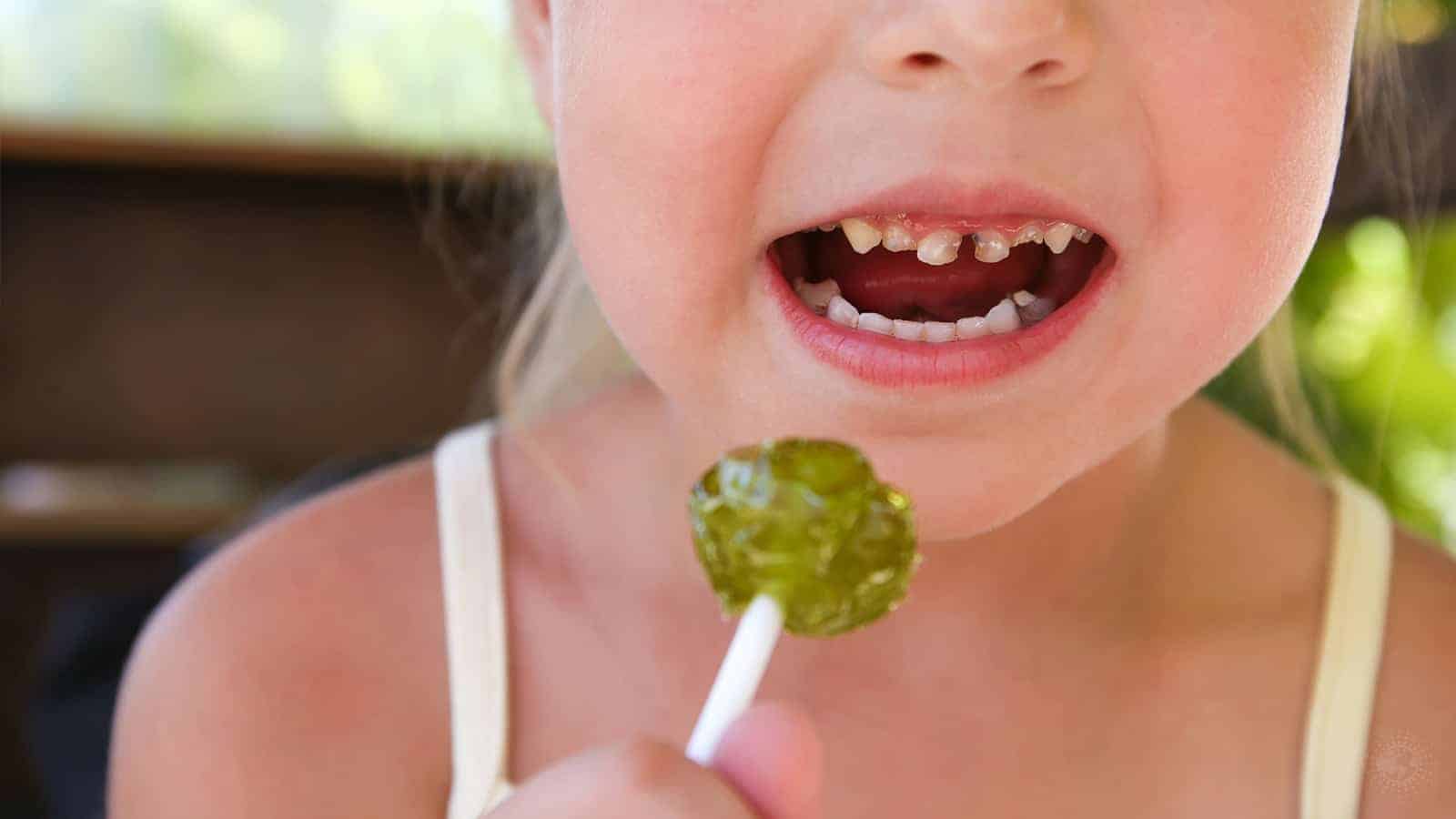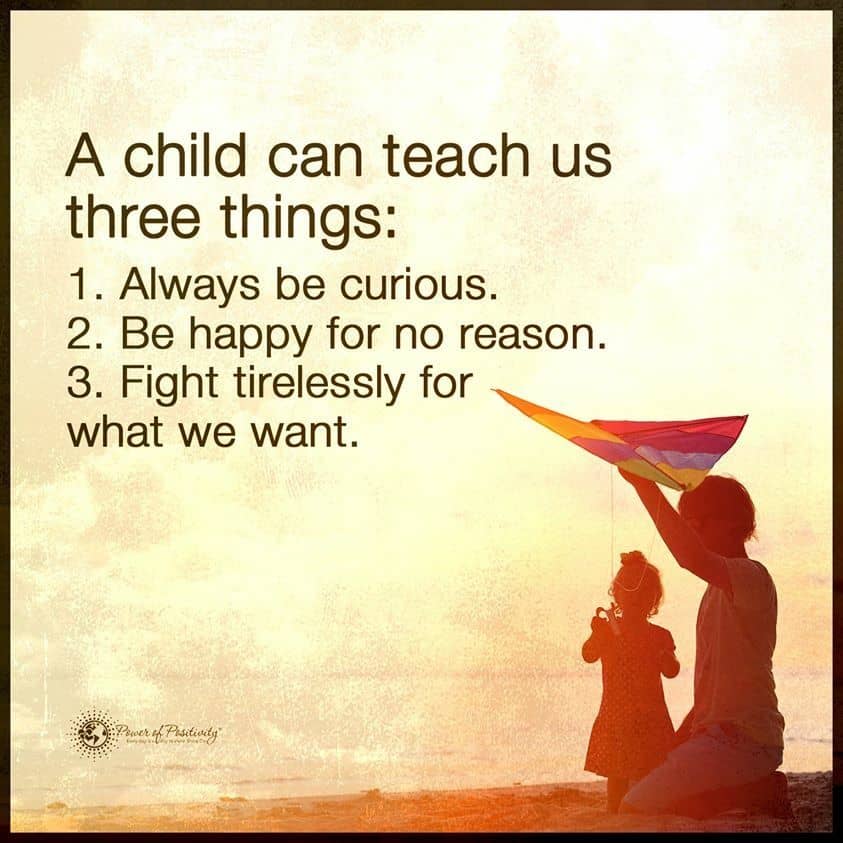How do you know if your child is eating too much sugar? You want your children to eat healthily and avoid junk food. Sure, the occasional treat is warranted. But did you know that the average person in this country eats more than 17 teaspoons of sugar every day?
The more sugar your child eats, the greater their risk of developing obesity, diabetes, and other chronic illnesses. Yet, they crave soft drinks, juice, bread, cookies, ice cream, and sweet breakfast cereals. Even if you’ve tried to limit their consumption, they can get their sweet fix elsewhere.
10 Signs Your Kids Are Consuming Too Much Sugar
It’s almost impossible to monitor everything they eat, but here are some signs that your child is eating too much sugar.
1. Weight Gain
Children grow and have weight gain each year. However, it’s essential to ensure that they stay within their target weight range for their height. One way to tell if your children are consuming too much sugar is by how well their clothes fit.If growth spurts aren’t to blame for their current need for new clothes, it could be their overconsumption of sweets. As a parent, it’s essential to give them alternatives that taste good and are good for them. You can’t afford to continuously be buying new clothes because they have a junk food problem.
2. Too Many Cavities
Kids notoriously don’t brush their teeth well, and a large sugar consumption only makes things worse. If your kid has more than a cavity or two when they go for a cleaning, then it’s a sign that either not brushing good or they’re eating too much sugar. It can also be a combination of both. Is it possible that your child is a sugar addict?
3. Refuse Nutritious Foods
Sugar is an addictive substance that alters the brain. Did you know that research has shown that sugar travels the same pathways as cocaine? Once a child gets a constant diet of sweets, it’s easy to refuse nutritious foods.
Even if your child loved steak and green beans before, now they may be refusing them because their body wants junk. Nothing can fill that craving other than more sugar. If you can’t get your kid to eat anything healthy, then it’s probably because their body is craving sugar, and they’re addicted.
4. Moody and Irritable
Have you ever noticed how bad your mood tanks when you overeat sugar? Think of how you feel after the Thanksgiving meal. Your tired, bloated, and irritable, not to mention sleepy.
Children, as adults, have various moods that accompany how they feel. However, if you notice that your once pleasant child seems to be cranky and on edge these days, their diet could be blamed.
When you eat sugar, it instantly raises your glucose levels and gives you a feeling of euphoria. However, when those sugar levels rebound, it can make you tired and irritable. So, make sure you watch their diets closely.
5. Not Sleeping Well
Have you ever drunk a soda before bed and found that you were up all night? Not only does the caffeine affect your body, but the vast amount of sugar causes issues too.
Your children may not be sleeping well because they are eating too much sugar. Eating too many sweets can make your body feel as if it’s on speed. Coming down from that high isn’t so easy, mostly when you eat it late at night.
6. Hyperactivity Issues
Attention Deficit Hyperactivity Disorder is a condition that affects more than six million children, which is 6.1 percent of the population. Is it any wonder that more and more kids are diagnosed with this condition each year?
In the 1980s, children were rarely given the diagnosis of ADHD as it wasn’t prevalent. What was also not typical was the consumption of too much sugar and fast food as it is today. Parents took the time to cook nutritious meals and didn’t rely on “eating out.”
In 2003, about 4.4 percent of kids between the ages of 5-18 were given this diagnosis. The numbers keep increasing, and many experts believe sugar and diet play a big part. When a kid is diagnosed with ADHD, the first thing a doctor will recommend is a diet change.
What’s on that alteration diet? Well, kids should avoid red dyes and sugar. Sugar alters the brain, and it shouldn’t be as big of a part of a child’s diet as it is.
7. Digestive Issues
Your body cannot merely process an overabundance of sugar. Your digestive system has a limit to what it can handle. If your child overeats sugar, they will present signs such as excess gas, flatulence, abdominal pain, and bloating, and they may be a frequent visitor to the bathroom.
Even if your child swears that they weren’t the one that ate all the cookies from the cookie jar, you can usually tell by their digestive upset if they’re telling the truth or not.
8. Craving Sweets Uncontrollably
One of the most common reasons why people crave sugar is that their blood sugar is fluctuating. When your blood sugar drops, the body wants more to bring it up to a healthy level. This is something that you should watch when it comes to children, as diabetes is not unheard of at a young age.
Juvenile diabetes is a complicated medical problem that requires constant monitoring. One way that you can tell if your child may be having a battle with their glucose levels is by their cravings for sweets. When your child eats sugar, it increases the serotonin levels in the brain.
Serotonin is one of the feel-good hormones that gives a euphoric feeling when stimulated. Since sugar plays on these chemical receptors, the addiction becomes psychological. People think, “if I eat this chocolate bar, it’s going to make me feel great.”
Hollywood depicts these addictions in movies. For example, when a woman has a breakup, she reaches for a half-gallon of ice cream, whipped topping, and some candy to mix into it. Why do people crave ice cream and sweets when they feel sad?
It’s because it stimulates those feel-good receptors and helps with their downtrodden mood. Simply put, sugar is comfort food to most, and they need it to help with their energy levels and mood. Once you break free from this vicious cycle, you will learn how to get your energy naturally.
9. Skin Breakouts
Have you noticed your child’s face, back, arms and chest breaking out more than usual? It could be their sugar addiction is causing skin conditions. When you consume sugar, you’re helping to put your body into oxidative stress.
During this period, the stress your body feels will cause issues for your gut’s lining, which will worsen any inflammation in the body. Your skin can also have problems with inflammation, and it’s linked to issues like acne.
Did you know that taking a probiotic every day has been known to help with acne? It sounds crazy that your gut could have everything to do with skin conditions like acne and eczema, but it’s true.
Have you ever heard someone say that they had too much chocolate, and now they have blemishes on their faces? While science has always refuted these claims, new research shows a direct correlation in the consumption of too much sugar and an acne problem.
It could be that all those over-the-counter topical treatments are unnecessary when the trouble is coming from within. Could a diet change be all that’s needed to rid acne?
10. Always Hungry
Children who don’t eat enough protein do so because they are often filling their stomach with too much sugar. Remember, sugar comes from carbohydrates like pasta, bread, and crackers. Sadly, many foods and beverages you buy in the grocery stores today are loaded with sugar, so you must read the labels.
A study was done in 2015 that showed that people who consume too much of the sweet stuff could have an increased appetite. The research found that fructose was the main culprit for uncontrollable cravings. The problem is caused by the hunger hormone known as ghrelin.
When your child is hungry, their ghrelin level is at its highest. After they eat a meal, the ghrelin level drops as they’re satisfied with a full belly. When children consume a diet that is full of products that are high in sugar, it tricks the body into making more of this hormone.
The problem is that even though their belly is full, this hormone is sending signals to the brain to make them think they’re hungry. What’s also scary is that this hormone plays an active part in your sleep-wake cycle, glucose metabolism, and learning and memory centers. Eating an overabundance of sugar affects so much than just their weight.
Final Thoughts on Discouraging Your Kids from Consuming Too Much Sugar
Parents have a small window of opportunity with their children to teach them good eating habits. A diet full of sugar and junk food will impact them for the rest of their lives. If they don’t learn how to eat healthily now, then they can have issues with obesity and diabetes, among other things, as they age.
While it’s easy to give in to these sweet treats and temptations, don’t use junk food as a rewards system. Instead, teach them that it’s okay to have an occasional treat, but they need to get their sweet fix from fresh fruit. A diet with too much sugar is not going to do anything but cause havoc on their system.
















 Community
Community

